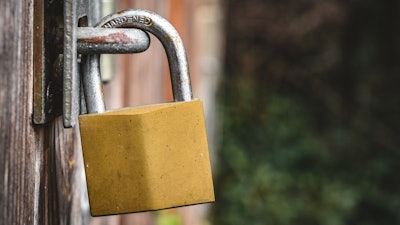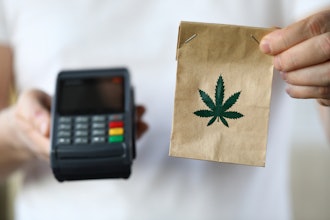
Governor Kathy Hochul today unveiled new initiatives to shut down illicit cannabis operations and protect the legal marketplace as part of the FY25 Enacted Budget. The plan provides the Office of Cannabis Management and local municipalities with new authority to take action against illicit storefronts and those who enable them. The initiatives are the strongest set of policies enacted thus far to tackle the illicit cannabis marketplace.
"Unlicensed dispensaries have littered New York neighborhoods, blatantly circumventing our laws and selling potentially dangerous products,” Governor Hochul said. “Enough is enough. I promised to protect our communities and hard-working, legal cannabis licensees by expediting the closure of illicit storefronts. I’m proud to stand up and say we got it done.”
Padlocking Illicit Storefronts
The FY25 Budget delivers on Governor Hochul’s committed to give broad padlocking authority to the Office of Cannabis Management (OCM). OCM will be authorized to padlock businesses immediately following an inspection if they are selling illicit cannabis and pose an imminent threat to health and safety for the following reasons:
- Sales to minors
- Unlicensed processing of cannabis
- Violent conduct
- Presence of unlawful firearms
- Proximity to schools, houses of worship or public youth facilities
- Products leading to illness or hospitalization
- Products not tested or labeled according to NY Law
Additionally, authorities from counties and cities, including New York City, will be authorized to padlock unlicensed businesses.
In addition to expanding padlocking authority, the Budget establishes a misdemeanor penalty for damaging or removing a padlock. This addresses previous limitations that beleaguered padlocking efforts statewide.
If a business is found to not meet the standards of imminent harm required for padlocking, OCM will issue a notice of violation and an order to cease unlicensed activity. These stores will be padlocked upon reinspection if unlicensed sales activity is still ongoing. If the store has approval from a State agency to sell alcoholic beverages, lottery tickets, or tobacco and vaping products, OCM will send a notice to the relevant State licensing agencies to inform of a violation under the cannabis law, and the business will be warned they are at risk of losing their licenses. OCM will immediately padlock a business following a reinspection if the unlicensed activity is continuing, even absent imminent threat. For all hearings, OCM, upon request must provide a hearing within 3 days, and a decision within 4 days after that. Should include that for consistency with the other parts.
Actions Against Landlords Who Fail to Cooperate With Cannabis Law
Under the FY25 Budget, Governor Hochul is cracking down on landlords who turn a blind eye to the illegal activity under their purview. If landlords fail to bring forth eviction proceedings against tenants in violation of the cannabis law, they will be held to strict penalties including:
- A $50,000 fine for any landlord notified of the violation within New York City
- Five times the rent from the time the landlord was notified of the violation outside of New York City
The FY25 Budget also lowers the standard of proof required to evict a tenant in violation of cannabis law. Landlords will now only have to prove that a business is “customarily or habitually” engaged in selling cannabis without a license, rather than “solely or primarily” doing so.
Expanding Local Authority
Counties and cities, including New York City, will be able to adopt laws related to regulating unlicensed cannabis businesses. The local laws must ensure consistent enforcement by requiring the establishment of procedures to conduct inspections, hearings, and emergency padlocking of businesses that mirror the State’s processes.
Localities outside of New York City must designate a point of contact to coordinate with and report on enforcement activities with OCM, and they must require hearings in city or county courts within three days and decisions in four days following the hearing for locations that were padlocked at first inspection due to imminent harm.
Local governments will now be able to initiate emergency proceedings against both unlicensed businesses and landlords. This allows localities to establish their own orders to cease unlicensed activity (upon 10-days' notice to OCM), and they may collect penalties through those proceedings.
Creating a Statewide Enforcement Task Force
Governor Hochul is launching a statewide task force to carry out civil enforcement to close illegal stores. By going after suppliers and taking on the pipeline of illegal cannabis these stores rely on, New York is taking on the root causes of the issue. And through fostering collaborations on this issue between State Police and local law enforcement, the state will be equipped to tackle the full scope of illegal cannabis activity.
Granting New York City Immediate Enforcement Powers
The New York City Administrative Code will be amended, allowing the City to act under the law immediately. This amendment will allow the City to inspect, issue violations, and seize cannabis and padlock stores. Additionally, the Sheriff’s Office will be designated as the lead under the law and can deputize other personnel to assist in enforcement.
New York City will be able to conduct administrative hearings within five days of execution of an emergency padlock order and will provide a decision within four days after the hearing. The legislation allows the New York City Council to amend the law at a later date.






















